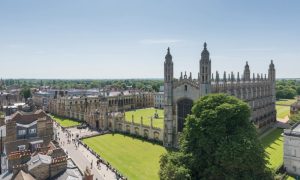Luxembourg, a small country in the heart of Europe, with its highly developed economy, excellent social benefits, stable political environment, and livable living conditions, is attracting an increasing number ofOverseas Immigration. However, the high cost of living in Luxembourg also discourages many people. So.immigrantsAfter Luxembourg, what are the real living expenses? In this article, we will provide you with a comprehensive analysis of the housing, daily consumption, transportation, medical care, education and other aspects of life in theImmigrant life in LuxembourgThe true cost of the

1. Housing costs: the most expensive cost of living in Luxembourg
Housing is one of the biggest living expenses in Luxembourg. Due to the small size of Luxembourg, the demand for housing exceeds the supply, especially in the capital, Luxembourg City, where prices and rents are consistently high.
-
Rental costs
- One-bedroom apartment (city center):€2,000 - €2,800/month
- One-bedroom apartment (suburbs):€1,500 - €2,000/month
- Three-bedroom apartment (city center):€3,500 - €5,500/month
- Three-bedroom apartment (suburbs):€2,500 - €3,800/month
If you want to keep the cost of renting an apartment low, you can choose to live in a neighboring city (such as Esch/sur-Alzette Esch-sur-Alzette, Differdange in Differdange, etc.) or consider sharing a room.
-
Cost of buying a house
- Downtown condo prices:€12,000 - €15,000/m2
- Suburban condo prices:€8,000 - €12,000/m2
Luxembourg's house prices are among the highest in Europe, so you need to think through your home buying budget before emigrating.
2. Daily living expenses: How much more expensive are things than in neighboring countries?
Luxembourg has a high level of daily consumption, but remains relatively affordable because of the high average income of the local population.
-
Catering costs
- One meal at a regular restaurant:€20 – €30
- Dinner for two at a mid-range restaurant:€80 – €150
- Coffee (Starbucks standard):€4 – €5.5
- Supermarket regular bread (500g):€2.5
- Milk (1L):€1.5 – €2
- Eggs (12):€4 – €5
- Relatively high prices for fruits and vegetables, e.g., apples (1 kg)€3 – €4Tomato (1kg)€4 – €5
Due to Luxembourg's proximity to France, Germany and Belgium, many residents choose to shop in neighboring countries to reduce their grocery bills. For example, a 40-minute drive from Luxembourg will take you to Metz, France, where prices are relatively inexpensive.
3. Transportation costs: free public transportation makes life easier
Luxembourg is a globalFirst to provide free public transportation for allof the country, both residents and tourists can travel free of charge on buses, light rail and domestic trains. This certainly reduces the cost of daily travel for immigrants.
-
fuel price(Luxembourg's low oil prices have led many residents of neighboring countries to fill up their tanks.)
- 1L gasoline:€1.5 – €1.7
- 1L Diesel:€1.4 – €1.6
-
Automobile costs
- An ordinary new car (e.g. Volkswagen Golf):€30,000 – €35,000
- Car Insurance:€800 - €2,000/year
If you like to drive, you may consider purchasing a car, but in Luxembourg, where city transportation is easy and parking costs are high, many people choose to use free public transportation to get around.
4. Medical costs: quality health system, low-cost coverage
Luxembourg's healthcare system is one of the best in Europe and the government operates a compulsory health insurance system (CNS). All regular working residents are automatically enrolled in the CNS, which is paid for by the employer and the employee and covers most of the costs of health care.
- Outpatient visits: The cost of a general practitioner consultation is approximately €50 – €80The out-of-pocket payment after reimbursement by Medicare is about €10 – €20
- Specialists: €100 – €150The out-of-pocket payment after reimbursement by Medicare is about €20 – €40
- Hospitalization costs: The vast majority is covered by insurance, with the patient paying a very small portion of the cost
- Private health insurance: €50 - €200/month(for additional supplementary benefits such as private hospital and dental treatment)
Luxembourg residents have access to a high-quality public health-care system and are reimbursed for most of their medical expenses, even if they are not privately insured.
5. Cost of education: public free, private expensive
If you have children with youImmigration to Luxembourg, then the cost of education is also a factor to consider.

- Public Schools: Free of charge, high quality of education, multilingual (Luxembourgish, German, French).
- International School: Tuition fees are more expensive, for example
- International School (ISL):€15,000 - €25,000/year
- European School:€5,000 - €10,000/year(partly free of charge)
- Private French schools, English schools, etc:€10,000 - €20,000/year
The quality of education in public schools is high, but if your child is not familiar with Luxembourgish, German or French, it may be necessary to choose an international school that teaches in English, which will add a certain amount to the cost of education.
6. Summary:Immigration to LuxembourgWhat is the budget required?
Below is an estimate of monthly expenses for an average family of 3 (couple + 1 child):

| Category of expenditure | Average monthly cost (€) |
|---|---|
| Rent (two-bedroom) | 2,500 – 4,000 |
| utility bills | 200 – 300 |
| Groceries | 600 – 1,000 |
| Dining & Entertainment | 300 – 600 |
| transportation | 50 - 150 (higher for driving) |
| Medical insurance (private supplement) | 100 – 300 |
| Children's education (international schools) | 1,000 – 2,500 |
| total | 4,750 – 8,850 |
If you plan toImmigration to Luxembourg, a reasonable budget needs to be set according to one's financial situation. For highly paid professionals and entrepreneurs, Luxembourg's high income, quality of life, security and tax incentives make it an ideal immigration destination.
If your goal is to settle down in the heart of Europe, Luxembourg is certainly an option worth considering!





